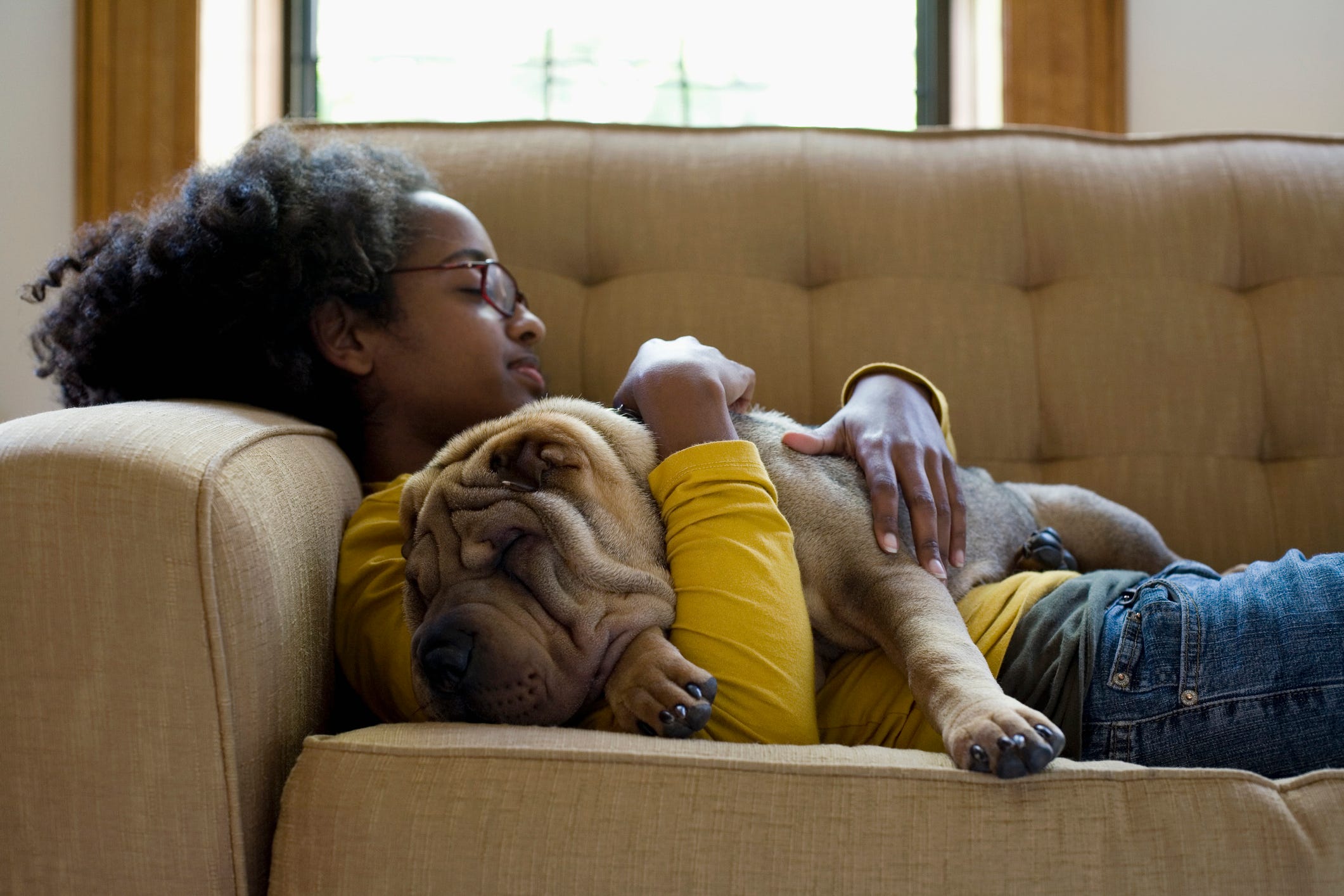
- Hugging is good for your health, but it’s a risky gesture during the pandemic.
- Weighted blankets and stuffed animals can provide a similar physical comfort when you’re on your own.
- Interacting in virtual worlds may also help you feel closer to friends.
- If you miss caring for another creature that can cuddle back, pet ownership and plant parenting provide alternative opportunities to nurture something.
- Visit Insider’s homepage for more stories.
The holiday season is usually a time of close reunions with family and friends, punctuated by welcome-home hugs and New Years Eve kisses. For many people, this year was different – and some might be experiencing the effects of hug deprivation as a result.
Craving a hug might feel like a purely emotional need, but touch does affect physical and mental wellbeing. Hug deprivation is most noticeable at either end of the age spectrum, said Suzanne Degges-White, chair and professor of counseling and counselor education at Northern Illinois University.
“We need that connection to other people,” Degges-White said. “It’s part of what helps us develop and grow when we’re infants. And then as adults, hugging is kind of like a magic potion. It’s a protectorate, and it’s also a cure.”
Infants who were touch-starved have been found to have stunted development, and hugs and physical touch can promote longevity through the reduction of inflammation in the elderly. Hugging also calms the nervous system, stimulates the production of the “cuddle hormone” oxytocin, and increases the circulation of feel-good neurotransmitter serotonin.
Evolutionarily, it makes sense that hugging brings many people a sense of comfort. Humans, like all mammals, evolved to stay warm by getting close to each other – so the instinct to cuddle up to a friend is deep-rooted, said psychologist James Coan, director of the Virginia Affective Neuroscience laboratory.
"Feeling the press of another person is the water we swim in," Coan said. "It's our ecological niche. It's our habitat."
While the World Health Organization has recommended against hugging anytime soon, there are ways to mimic the physical sensation of an embrace and the emotional bond it represents. Degges-White said these substitutes are a bit like cauliflower rice when you're on a diet - maybe not quite as satisfying, but close enough to the real thing that you can pretend.
Here are some hug substitutes to get you through the lonely winter.
If you crave physical comfort, cuddle up with a weighted blanket or stuffed animal
If the warmth and pressure of a hug are what you miss most, you can get a similar feeling from snuggling with an inanimate object.
Products like weighted blankets, body pillows, and stuffed animals can give you something to hug even if you're socially isolated. Versions with a little extra weight or heat - like these plush creatures with lavender-scented heating packs inside - mimic the sensations that make a hug so comforting.
Researchers think weighted blankets could relieve anxiety and insomnia for the same reason swaddling soothes babies: because the pressure is so similar to a calming hug. However, more studies need to be done to back up these claims with science.
There are also some physically relaxing practices you can incorporate into your life without buying anything new. Degges-White said warm or hot showers and self-massages can provide a sense of calm, and even drinking a cup of hot tea can have a comforting effect.
Try using games like Minecraft and Animal Crossing to express your love virtually
Some of the benefits associated with physical touch stem from the relationship that underlies the gesture. For instance, in studies of hand-holding, Coan found that holding the hand of a spouse had a stronger calming effect than doing the same exercise with a stranger.
"It's not only about just the tactile qualities of the hand you're holding," Coan said. "It's also a lot about whose hand it is, and what your experience is with that person."
Virtual worlds like Animal Crossing and Among Us have served as representational social spaces during the pandemic, allowing people to "hang out" with friends even when required to stay at home, Taylor Lyles wrote for The Verge last month. Coan said he's noticed a similar phenomenon when watching his daughters play Minecraft with friends.
"It matters to them that they know the person whose mind is, in a sense, occupying the avatar that they're walking around in that weird little Minecraft world," he said.
That being said, there are more low-tech, physically distanced ways to represent your relationship with a person. Degges-White said she uses the sign language gesture for "I love you" to show her kids she cares even when she can't get close to them.
If you miss interacting with another living thing, get a pet or a plant
While a weighted blanket can't hug you back, there are non-human creatures that can reciprocate your affection.
If you're in a situation where getting a pet would make sense (and you haven't gotten one already), animals can help people feel socially connected while providing health benefits. A review published in Cardiovascular Quality and Outcomes found that dog ownership is associated with a lower risk of death.
Nursing homes and other senior living settings have brought in robo-pets for residents who can't manage pet care on their own. The animatronic creatures can bark, purr, and wag their tails, and some even have a simulated heartbeat, providing an interactive, tactile antidote to loneliness.
If plants are more your speed, tending to a fiddle-leaf fig tree or a succulent garden can feel like a relationship in its own way.
"They say if you don't have kids, you have plants," Degges-White said. "There's an emotional connection to some kind of living creature where you are required to show up."
Degges-White said people could even get a level of satisfaction from kneading dough - after all, yeast is a living creature that will push back with time. Perhaps nurturing a sourdough starter was part of the appeal that made baking bread such a popular quarantine hobby.
Read more:
This robot is designed to hold your hand when you're feeling lonely
People are experiencing 'skin hunger' after months without touching anyone
How to deal with anxiety and loneliness during the coronavirus outbreak

